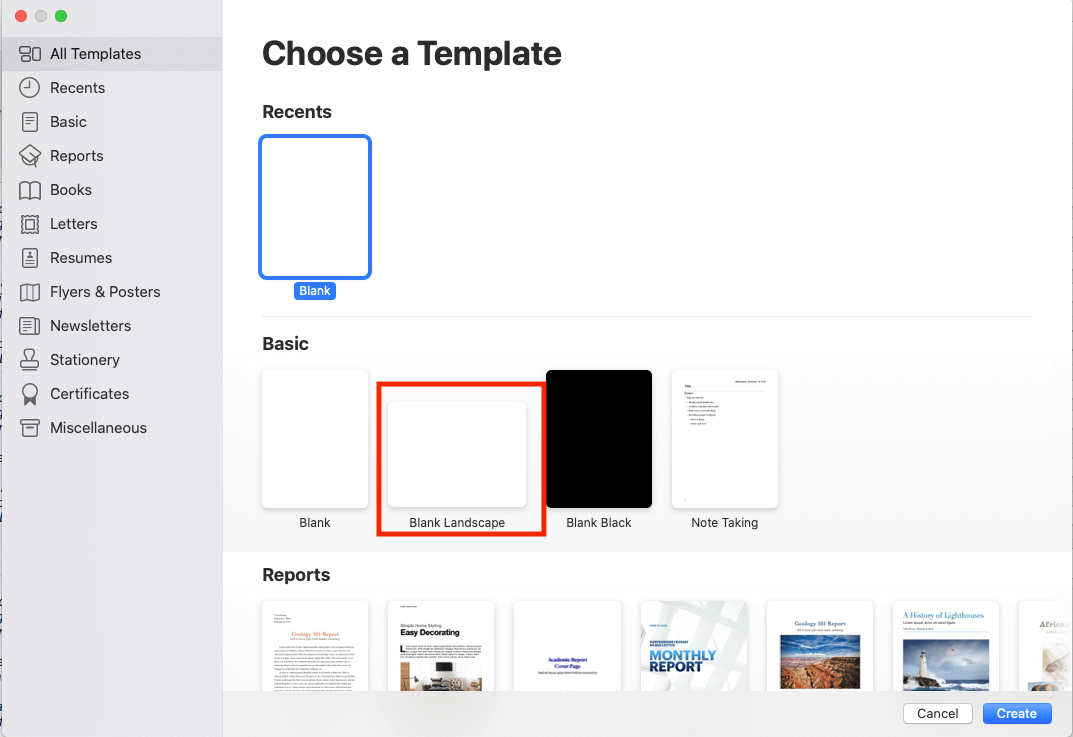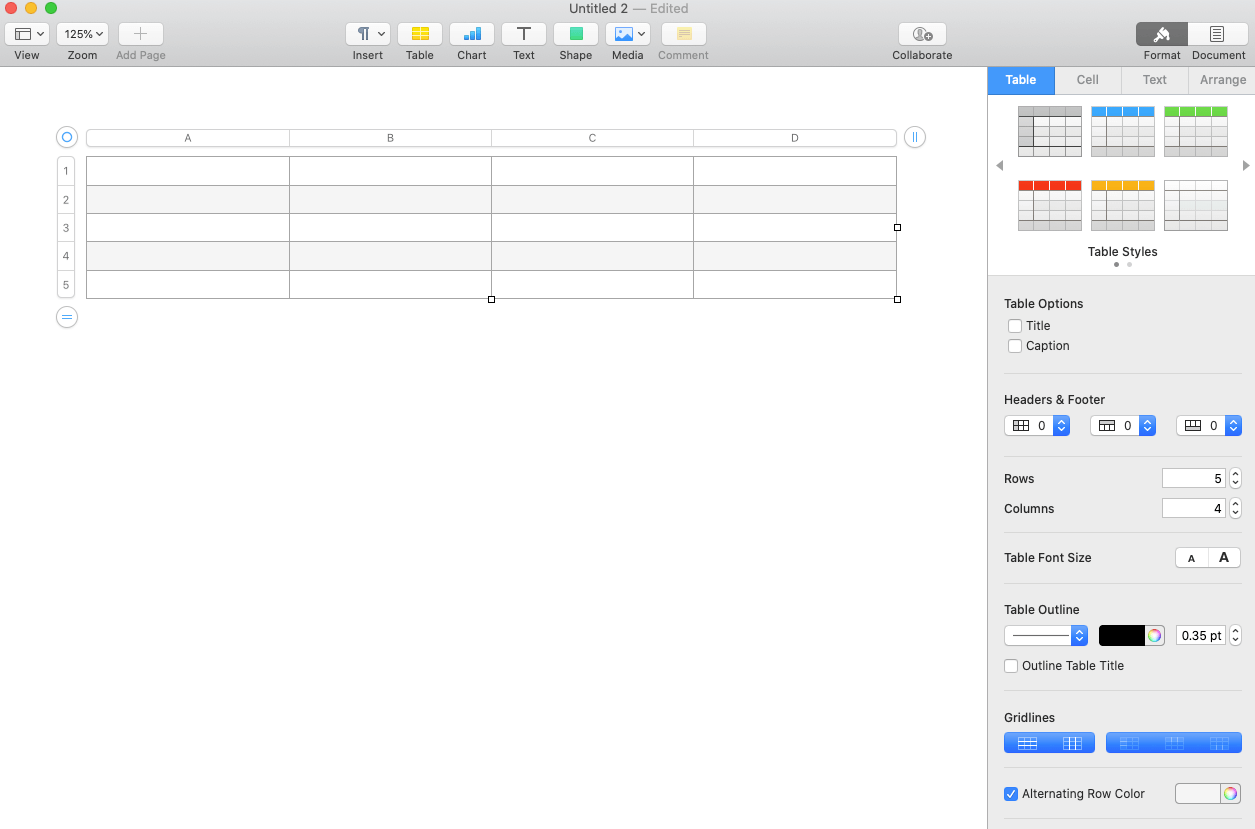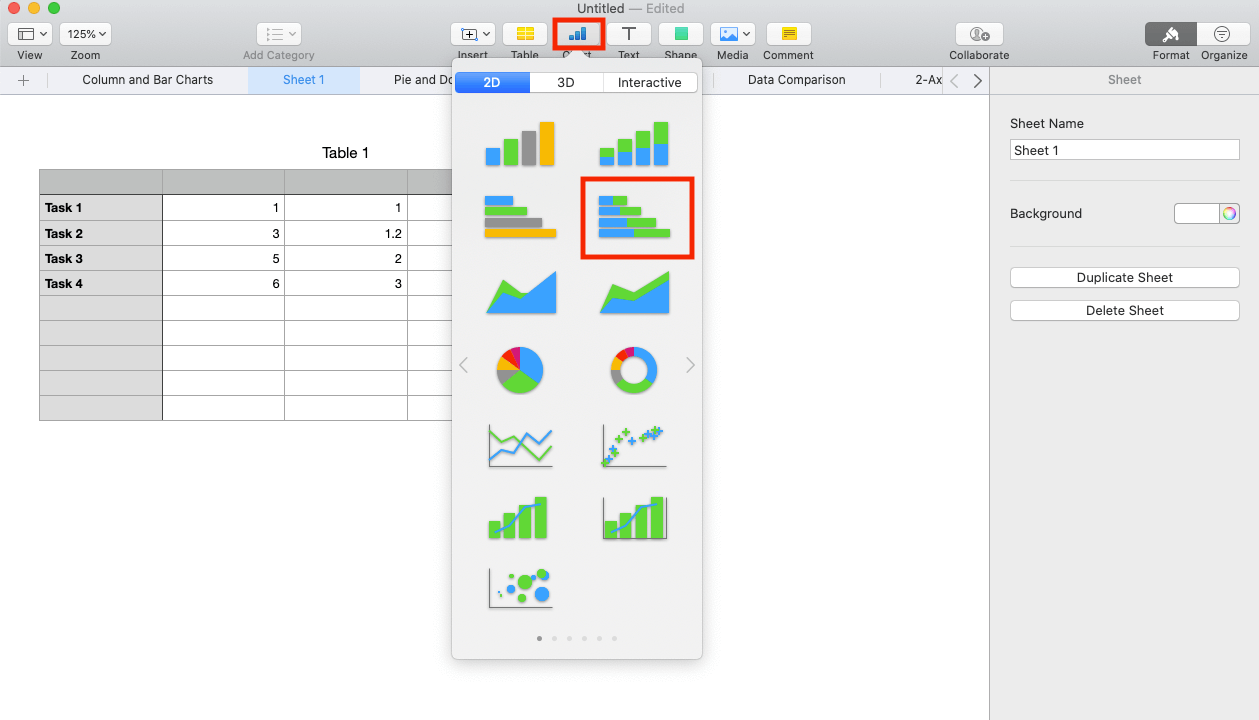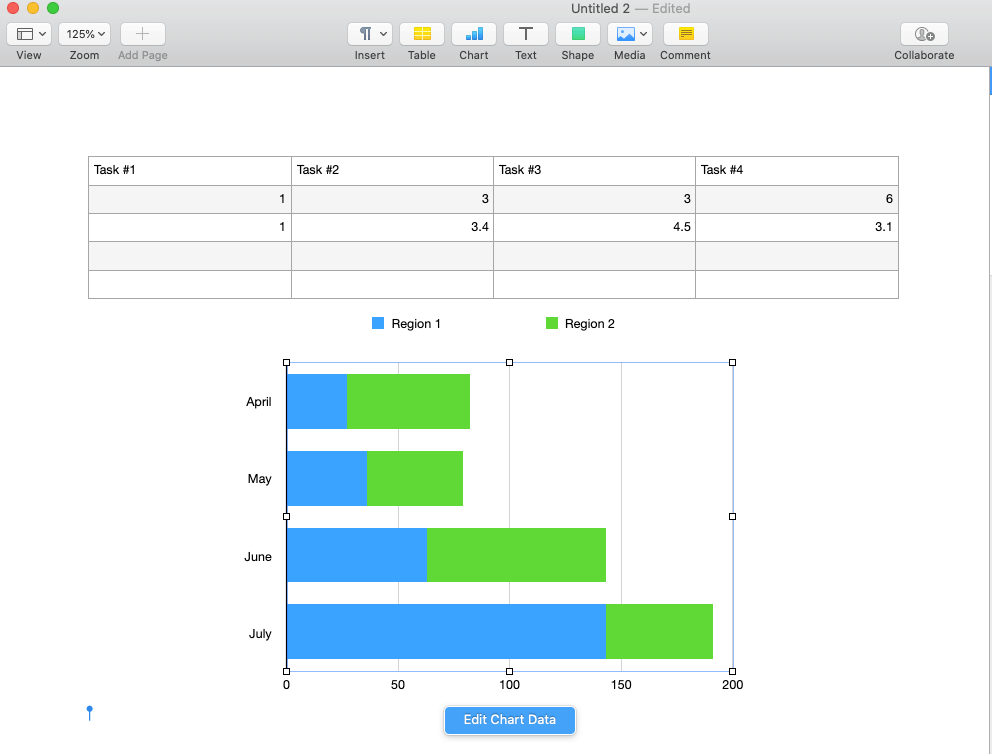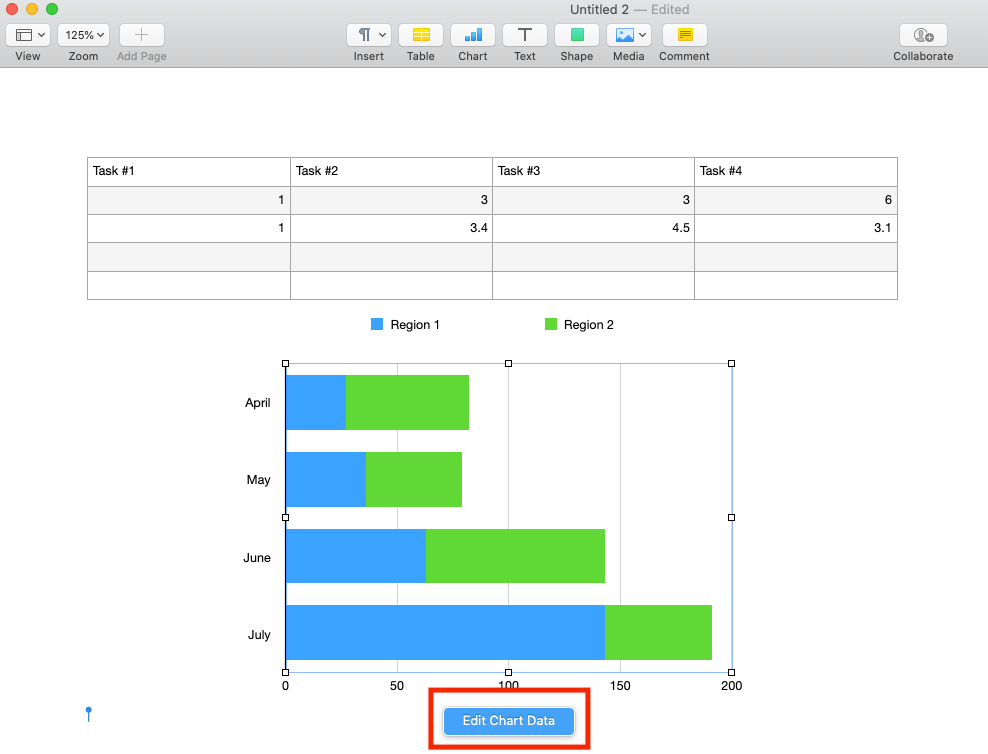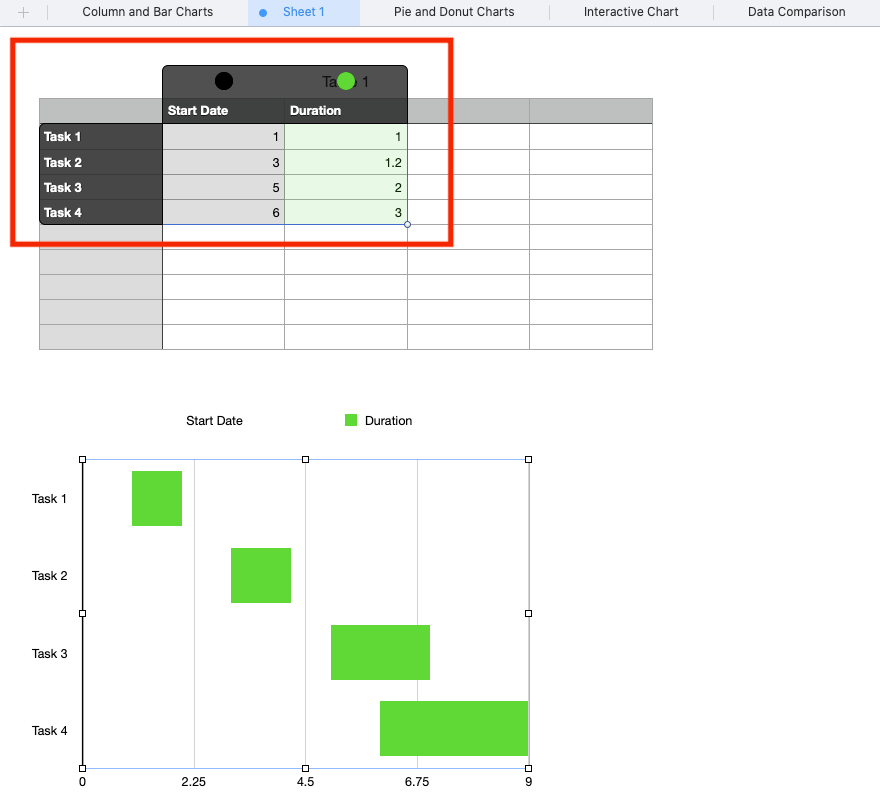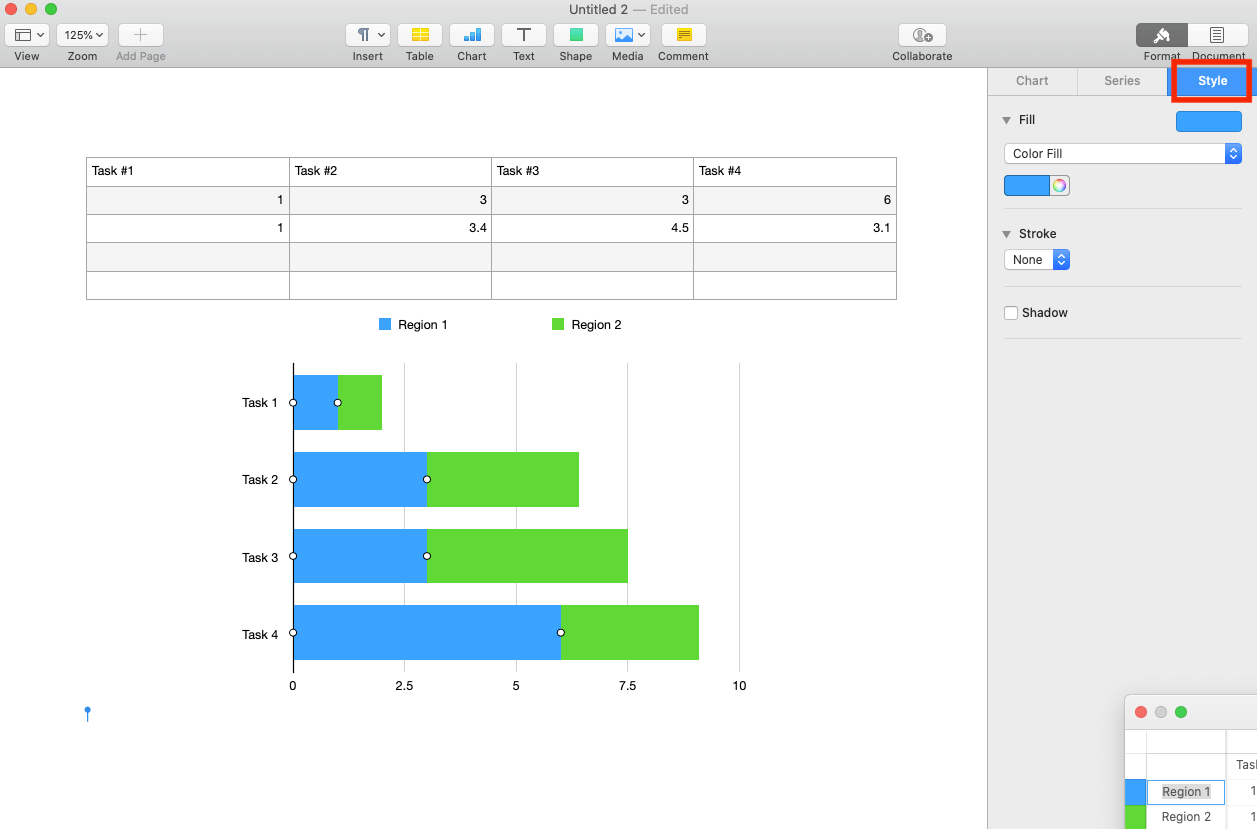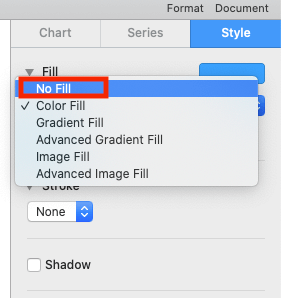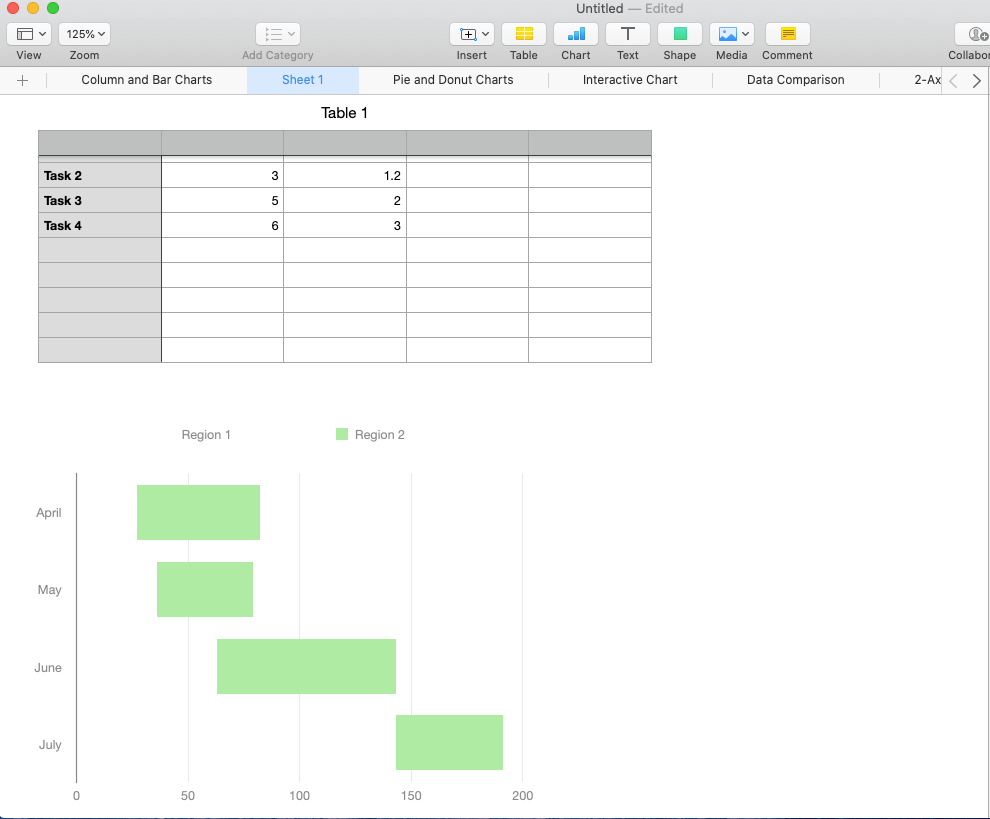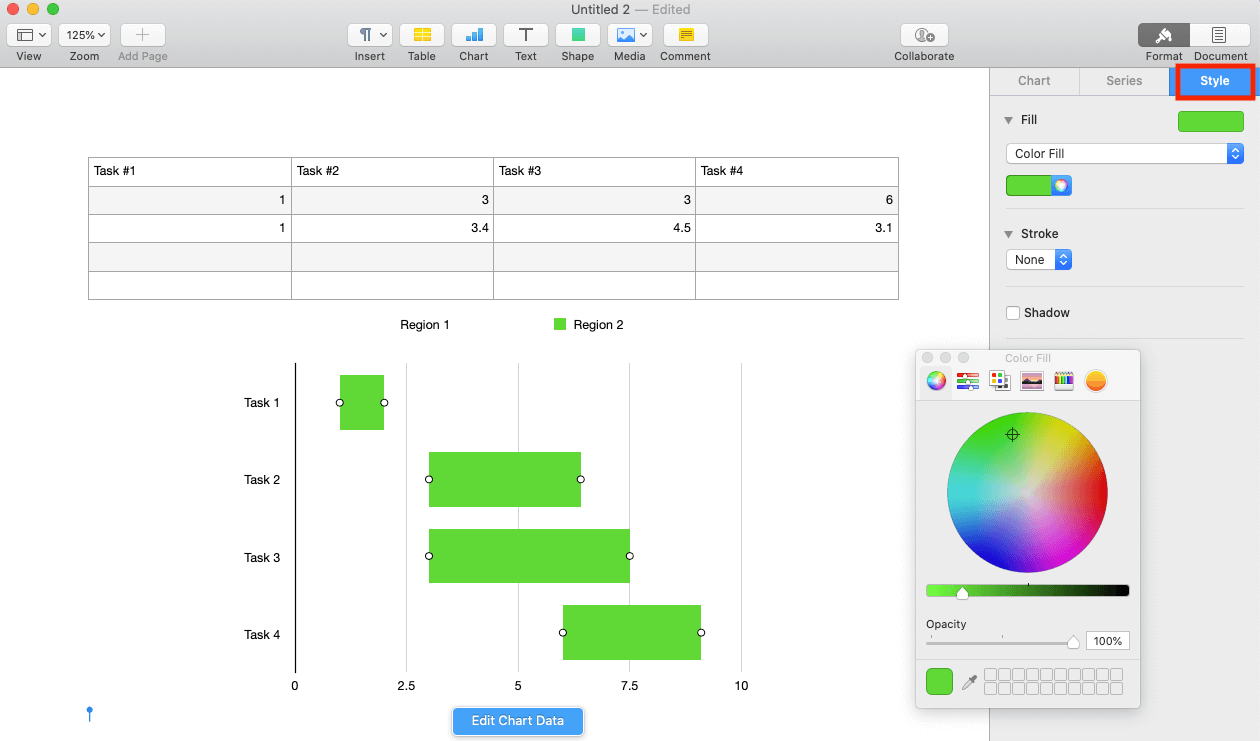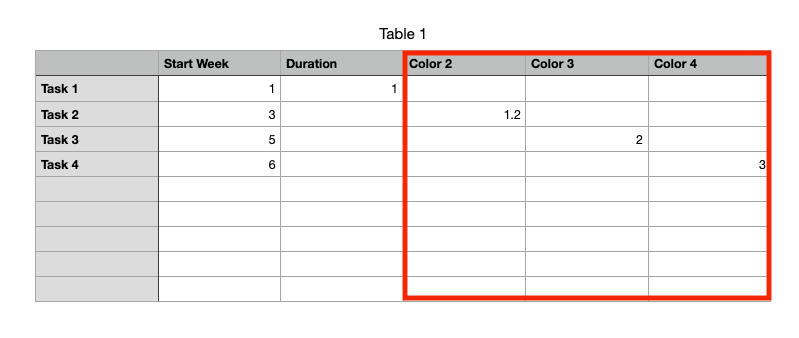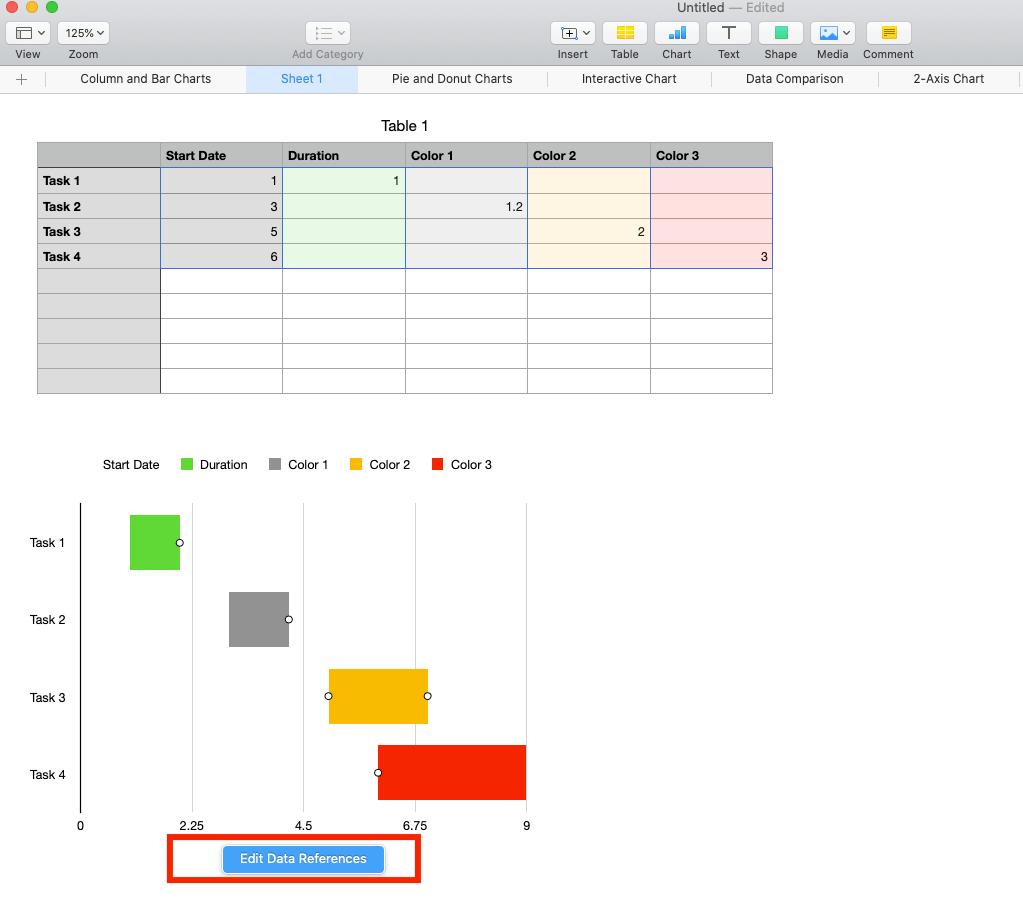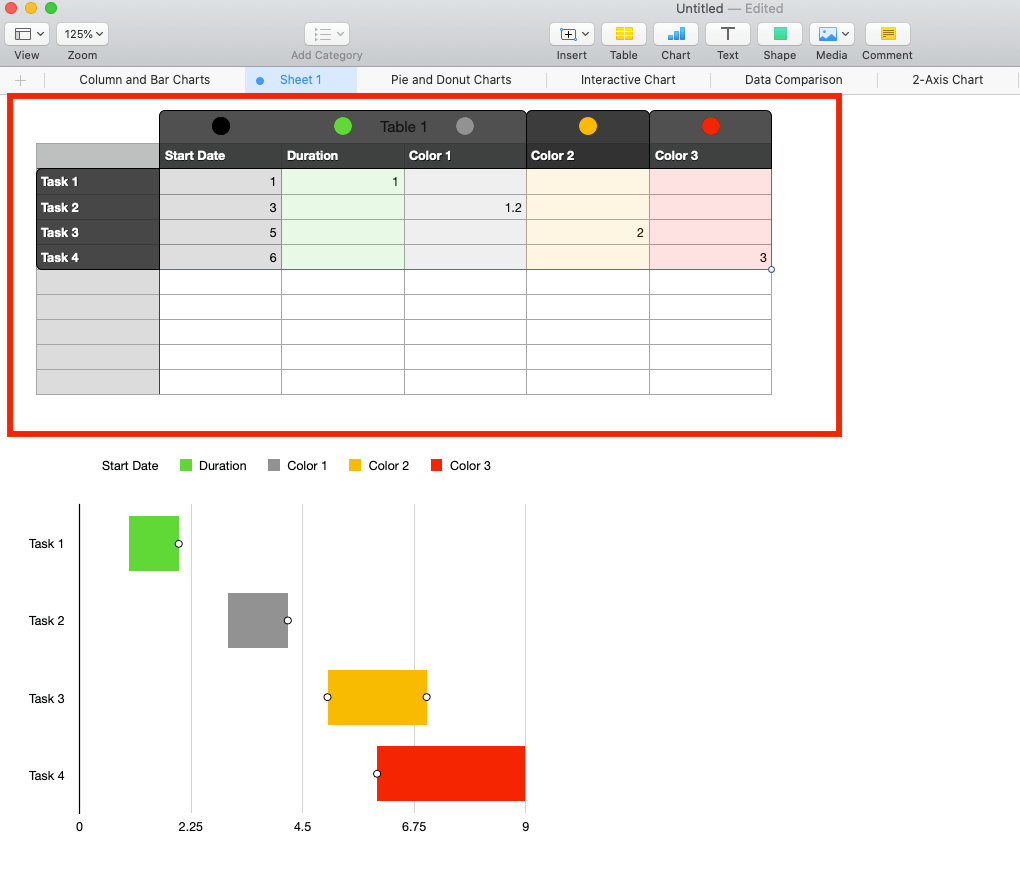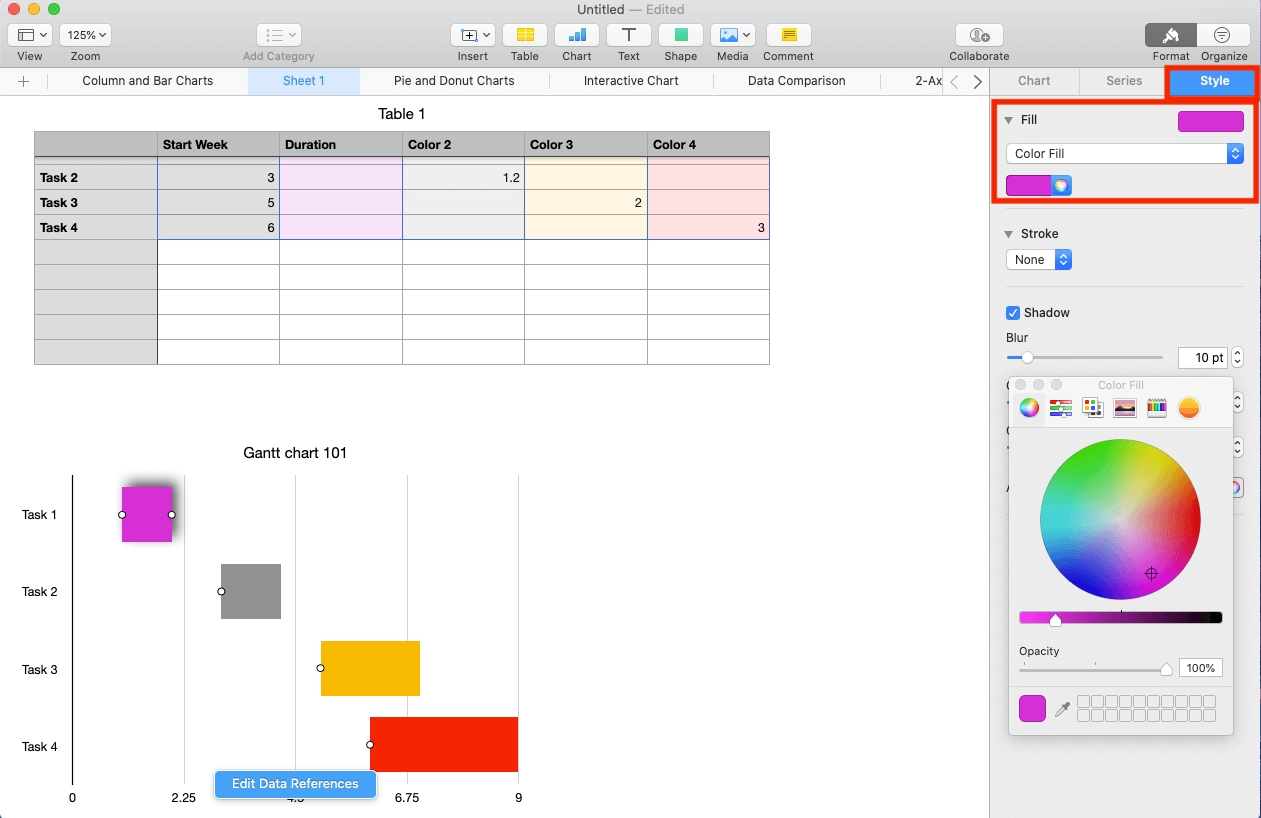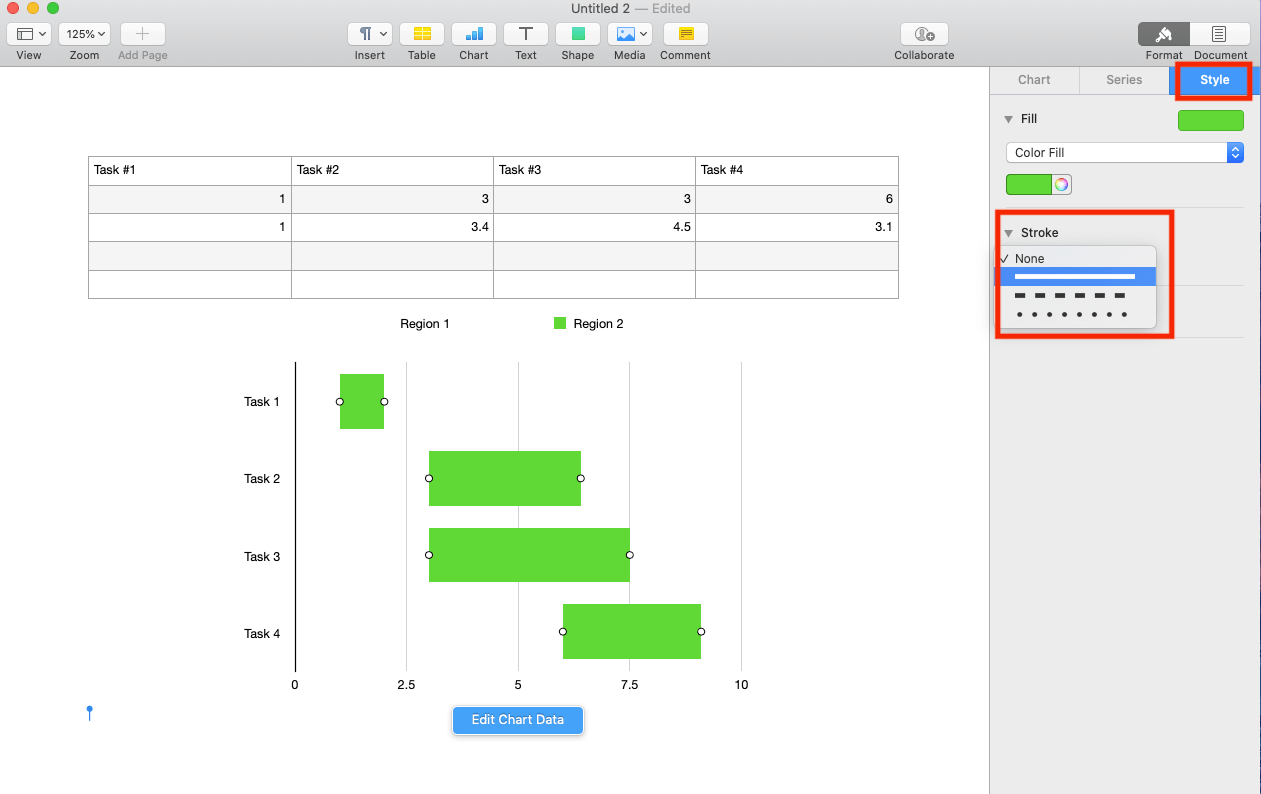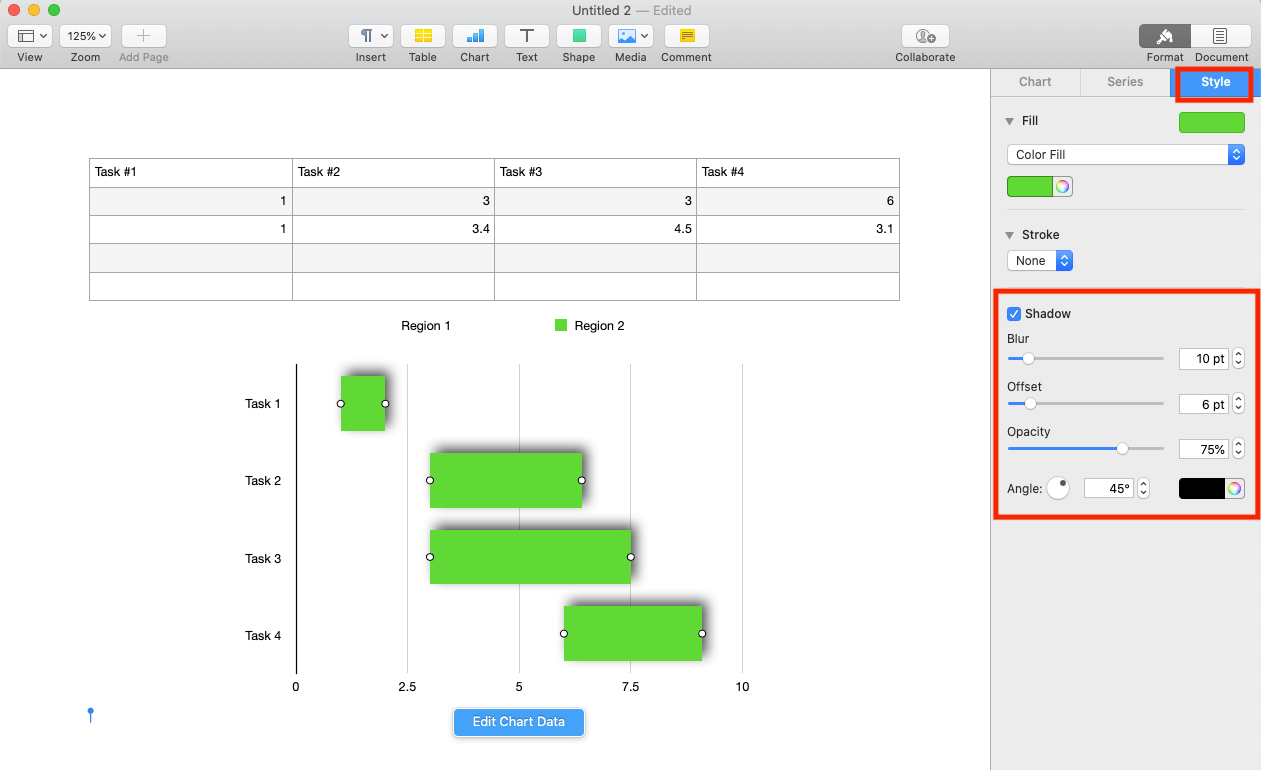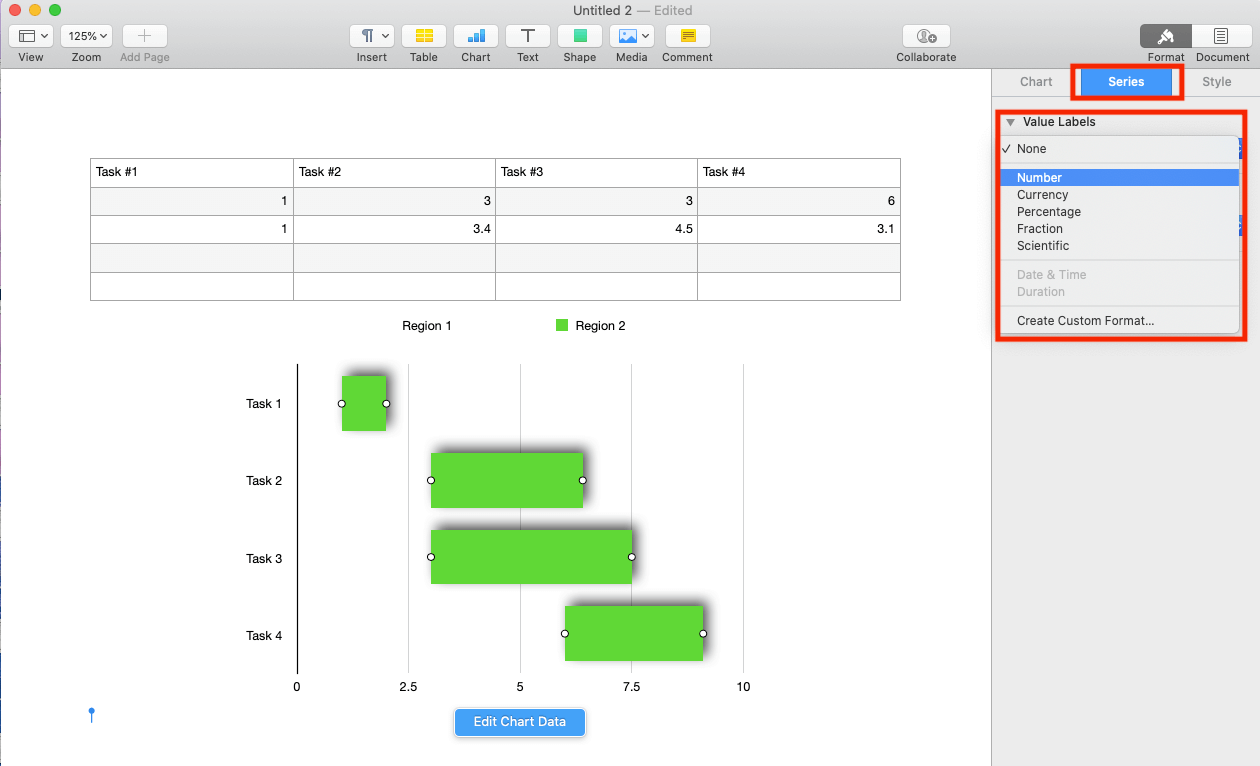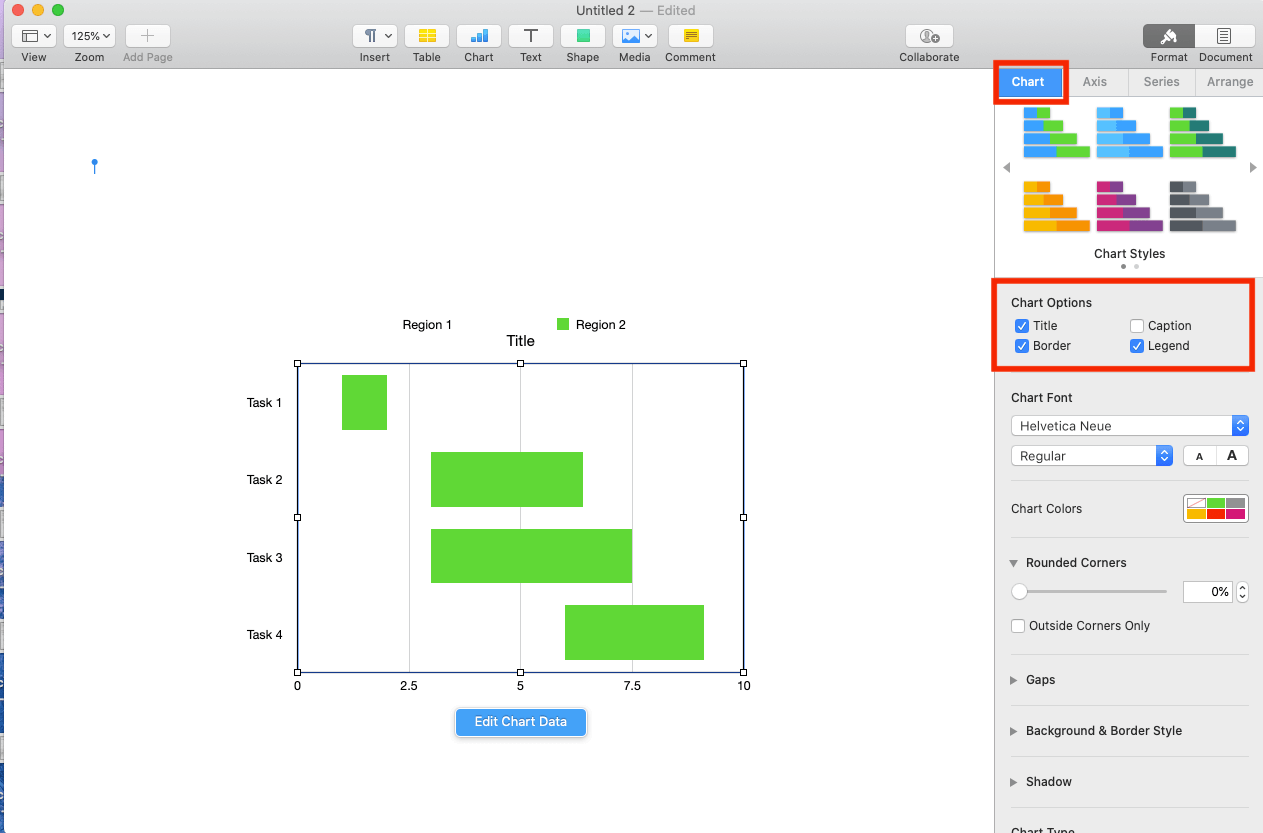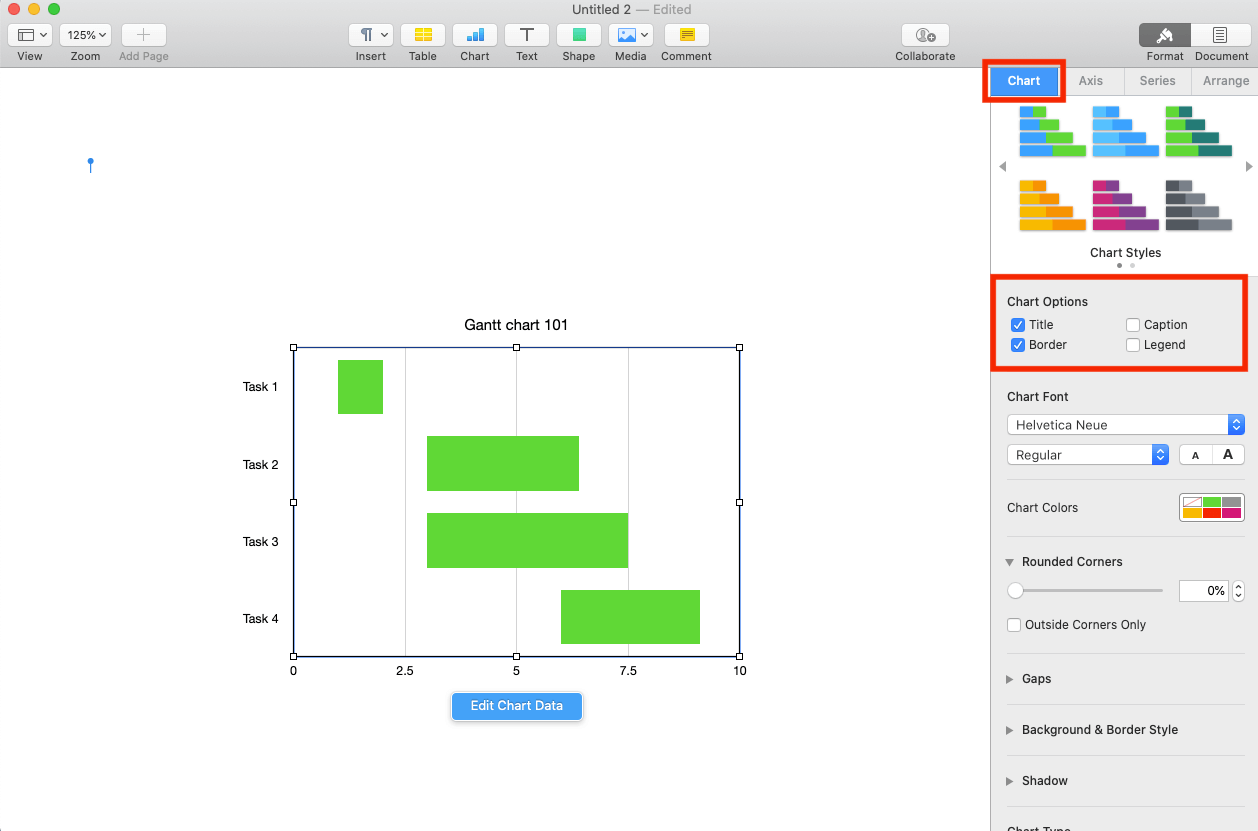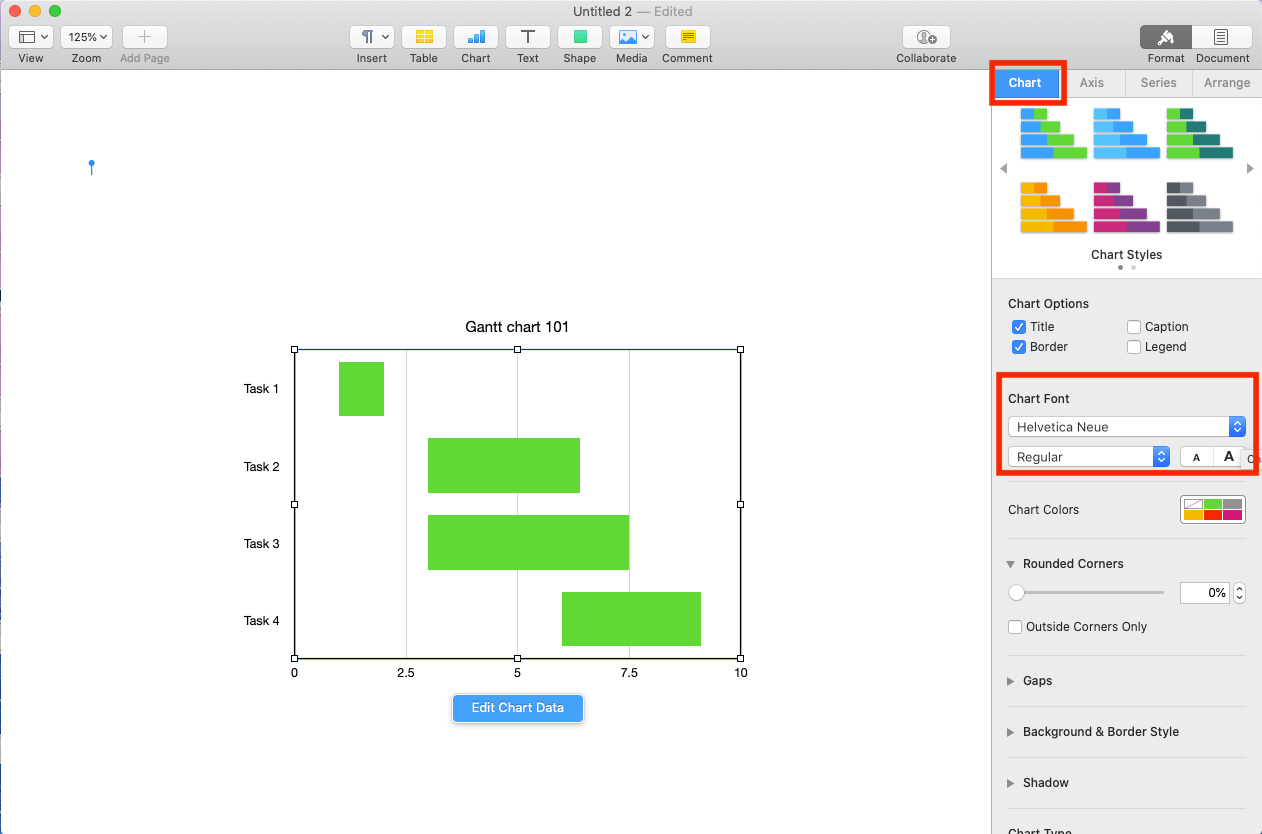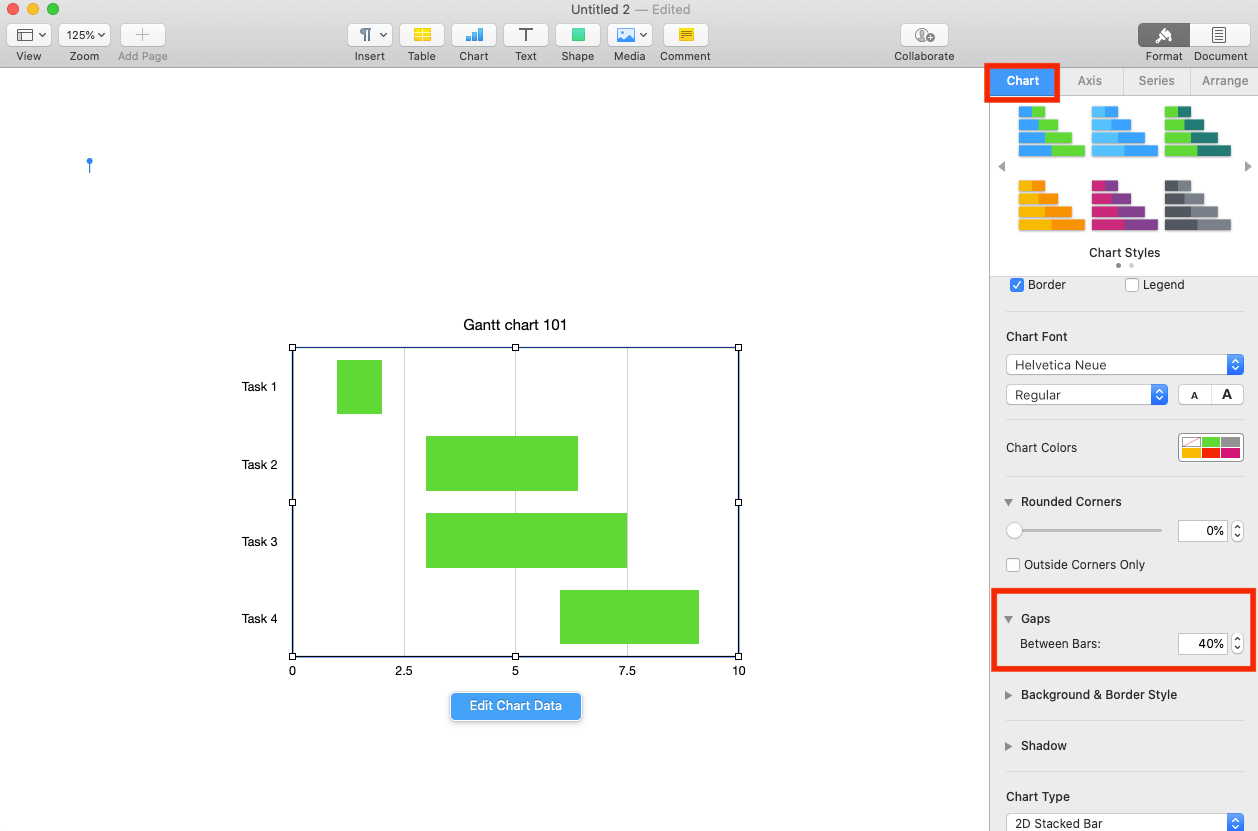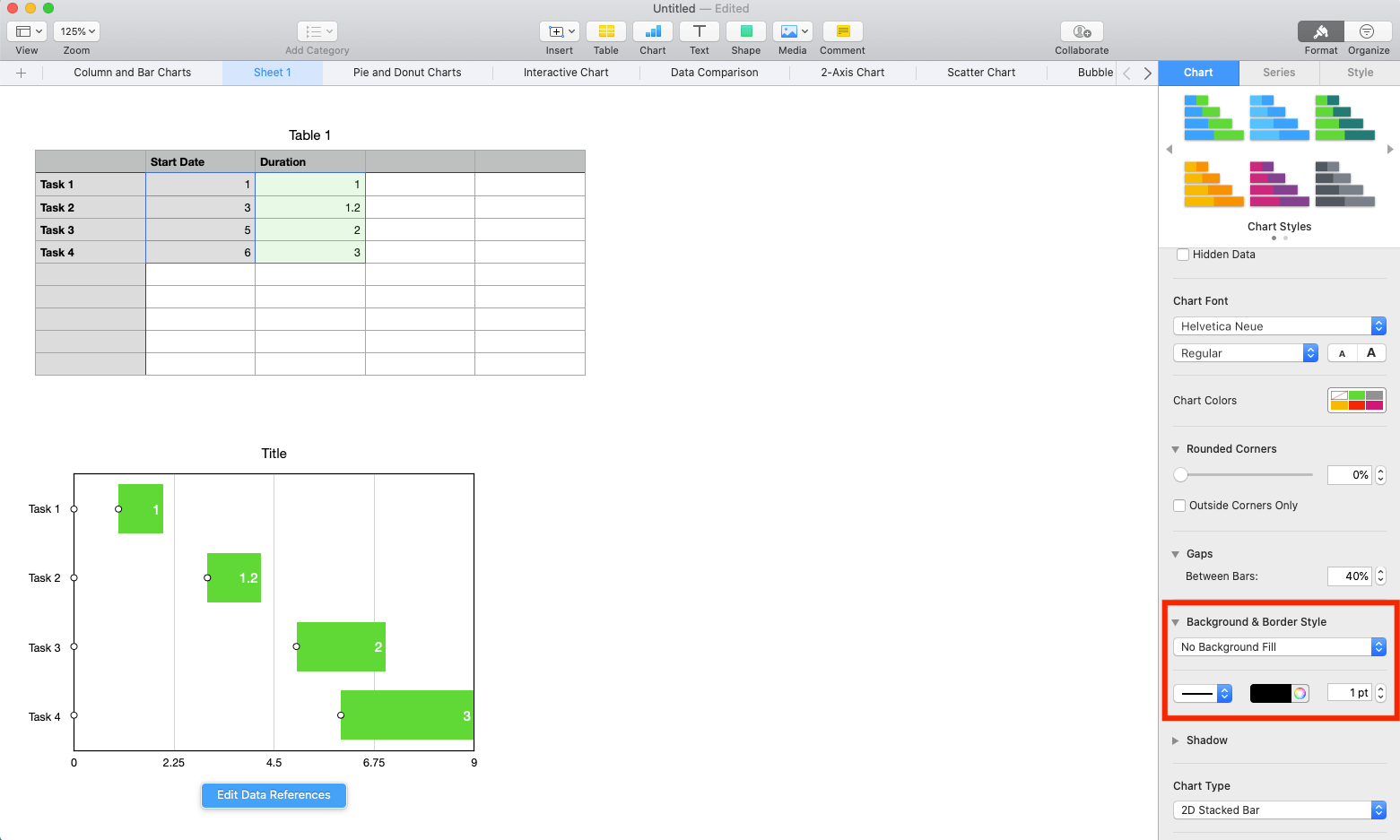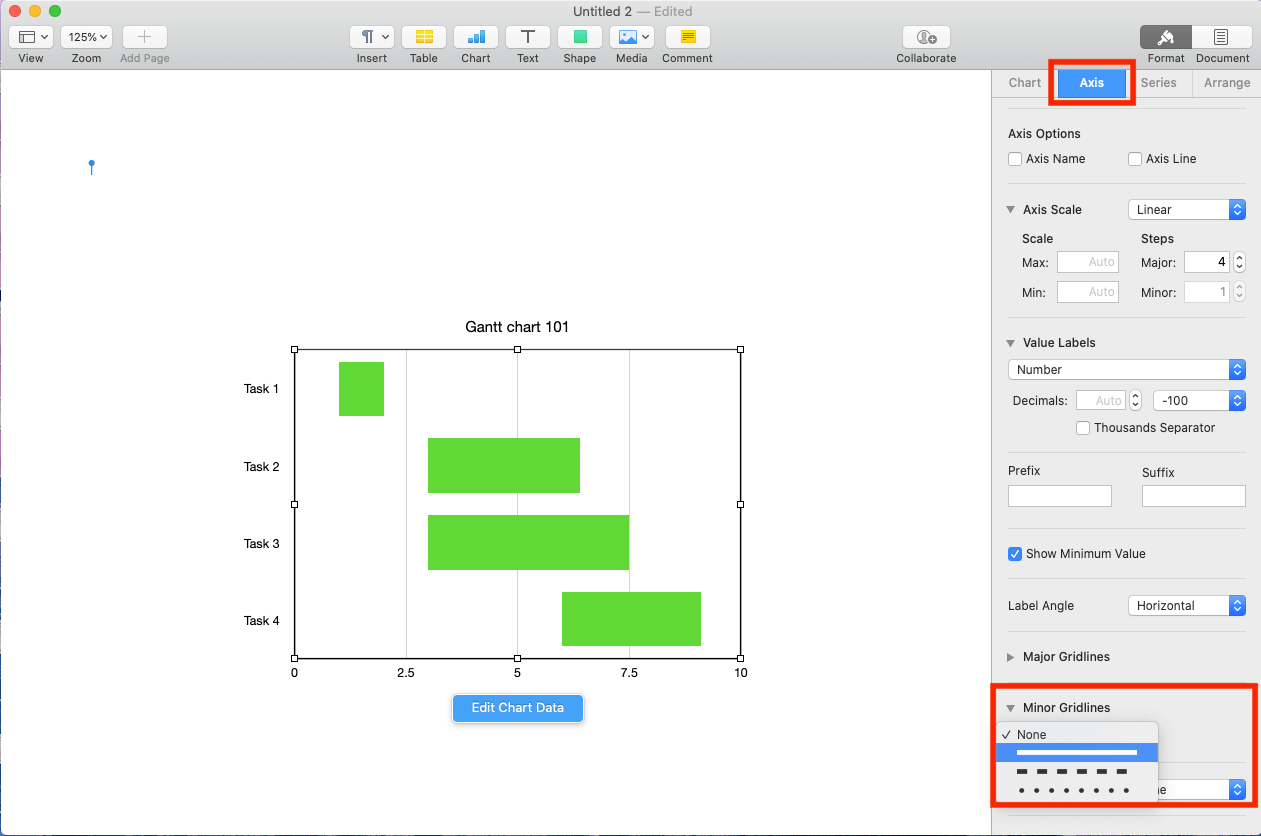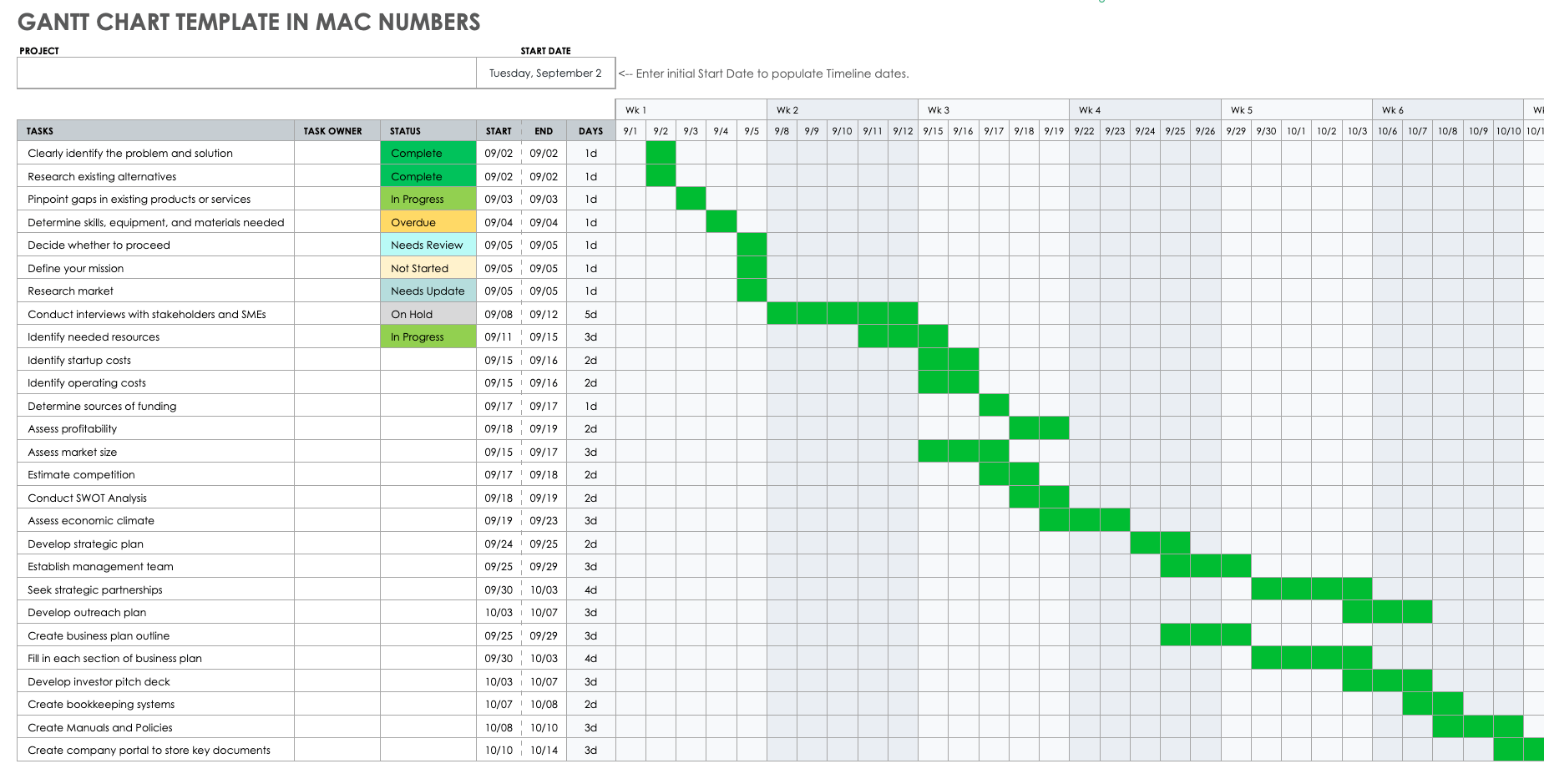How to Make a Gantt Chart in Numbers
Want to use a Mac spreadsheet app, Numbers, to create a Gantt chart for your project? Our tutorial includes easy-to-follow steps, so you can create and customize a Gantt chart quickly.
If you’re interested in learning more about Gantt charts, visit this article all about Gantt charts. If you want to create a Gantt chart in other applications, including Microsoft Excel, Microsoft Word, Apple Pages, and Google Sheets, visit our comprehensive how-to article.
Prepare the Spreadsheet in Numbers
- Open a blank document.
- Click the Charting Basics template.
- Click the + button in the top-left corner of the Chart Basic ribbon to create a new sheet.
Input Project Data into the Automatically Generated Table for the Gantt Chart
- Add your project tasks to Column A.
Pro Tip: Keep the task names short (between 10-15 characters) so they are clearly visible on the chart.
- Add the start date, in weeks, for each project task to Column B.
Pro Tip: The first task should match up to the first start date of the project.
- Add the duration of each project task, in weeks, to Column C.

Add a 2D Stacked Bar Chart to the Numbers Document to Make a Gantt Chart
- Click Charts in the Numbers ribbon bar. Click on 2D Stacked Bar in the menu.
- Numbers will add a basic stacked bar chart to the sheet.
Edit Data Reference on New Chart
- Click on Edit Data References below the new chart.
- A box will appear on top of your data table. Extend the box over the entire data table, covering the Task, Start Date, and Duration columns.
Turn a Basic Stacked Bar Chart into a Gantt Chart
- Double-click on any of the blue bars in the chart.
- Click the Style tab in the Format menu on the right.
- Click the Color Fill bar, then click No Fill.
- The resulting graphic will resemble a Gantt chart.
Adjust Task Durations on a Gantt Chart in Numbers
Gantt charts help you easily see when and how tasks overlap. It’s a useful tool for determining if the duration of a task is too long or too short, or if its place in the project needs to change.
Change the Durations or Placement of Tasks
- Navigate back to the original data table you created.
- Change the start weeks and durations by adjusting Start Week (Column B) and Duration (Column C) numbers for tasks. You can also add or remove tasks by deleting them from the data set.
Adjust task order and task durations as needed while the project progresses.
Customize Your Gantt Chart in Mac Numbers
You might want to color-code tasks so that you can group them together and create a better visual overview of your project. You’ll also find instructions for changing fonts, as well as adding shadows and labels.
Change the Color of All Task Bars in a Gantt Chart
- Click on the bars in the chart.
- Click the color dial in the Style tab of the Format menu, then click on a color.
Change the Color of a Task Bar in the Gantt Chart
- Insert two to three extra columns next to the Duration row in your chart.
- Name these columns Color 2, Color 3, Color 4, and so on. You’ll need a column for each color you want to add.
- To change the color of a specific task, start by clicking the duration value in its original row. Cut and paste the value into one of the Color columns. The value should remain in the same row as the task.
Pro Tip: Any tasks with Duration values on the same row are now part of the same series. This means that all tasks in that row will be changed simultaneously. Tasks with Duration values on different rows are part of a distinct series that you can customize separately. - Once you have the new columns for each color, select Edit Data References at the bottom of the chart.
- Drag the box over the entire data table, including the new columns for each color. This will update the colors on your chart automatically, so that each task bar has a new color.
- Double-click on any bar in the Gantt chart.
- On the color dial on the right side, select Fill and Style to choose a color from the color dial.
Customize Shadows and Effects of Task Bars on a Gantt Chart
- Click a bar on your chart.
- Click the Style tab in the Format menu, then click the Stroke dropdown menu.
- Click the desired stroke.
- In the Style tab, check the Shadow box to apply a shadow feature to the task bars. Make adjustments by using the controls that appear.
Display Task Durations on Gantt Chart
- Double-click any bar in the chart to select all of them.
- Click the Series tab in the Format menu. Click the Value Labels dropdown menu, then click Number. The duration in weeks will appear on the task bars.
Customize the Chart Area of a Gantt Chart in Numbers
- Click the chart, then click the Chart tab.
- Click the boxes for Title and Border under the Chart Options section.
- Add a title in the Title box.
- Click the arrow next to Background & Border Style option. Adjust the settings for fill, color, and line.
Remove the Legend from the Gantt Chart
- Click the chart, then click the Chart tab in the Format menu.
- In the Chart Options section, uncheck the Legend box.
Customize the Font of the Gantt Chart
- Click the chart, then click the Chart tab in the Format menu.
- Navigate to the Chart Font section and adjust both the font style and size.
Pro Tip: To customize the chart title or individual project tasks separately, double-click the title or the task you want to change. An editing window will open on the left side, and you can make adjustments as needed.
Adjust Task Bar Spacing in a Gantt Chart
- Click the chart, then click the Chart tab in the Format menu.
- Click the Gap section. Use the arrows to adjust the percentage of space in the Between Bars number.
Add a Background Color to a Gantt Chart
- Click the chart, then click the Chart tab in the Format menu.
- Click the Background and Border Style arrow. From the dropdown menu, click Color Fill. Click a color for the background.
Add Vertical Lines to a Gantt Chart
- Click the chart, then click the Axis tab in the Format menu.
- Click the arrow next to Minor Gridelines. From the dropdown menu, click the type of lines you want to appear vertically on the Gantt chart.
Pro Tip: You can use the other options in that section to customize the color and width of those lines as well.
Gantt Chart Template in Mac Numbers
Download Gantt Chart Template – Mac Numbers
Use this Gantt chart template to track and manage projects with an accurate visual representation of several elements from start to finish. There is space to list all project tasks, assignees, start dates, end dates, and more.
Peruse our collection of Gantt chart templates to find downloadable versions in other formats.
Create a Gantt Chart in Smartsheet with a Few Easy Clicks
Looking to create a Gantt chart even faster? Smartsheet offers an easy way to get from spreadsheet format to Gantt view in a few quick clicks. Watch the video below to see how.

Get the Most Out of Your Gantt Charts with Smartsheet
Empower your people to go above and beyond with a flexible platform designed to match the needs of your team — and adapt as those needs change.
The Smartsheet platform makes it easy to plan, capture, manage, and report on work from anywhere, helping your team be more effective and get more done. Report on key metrics and get real-time visibility into work as it happens with roll-up reports, dashboards, and automated workflows built to keep your team connected and informed.
When teams have clarity into the work getting done, there’s no telling how much more they can accomplish in the same amount of time. Try Smartsheet for free, today.
